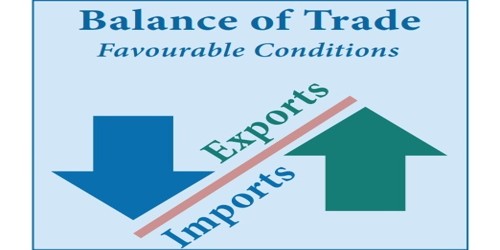
When it comes to protecting your financial future, selecting the right insurance policy can make all the difference. With so many options available, it can be overwhelming to determine which insurance coverage is best for you. In this section, we will dive into the key factors to consider when choosing an insurance policy, providing insights on coverage options, policies, and reputable insurance companies.
Key Takeaways
- Choosing the right insurance policy is essential for financial security.
- It can be overwhelming to determine the best insurance coverage.
- Factors to consider include policy options, coverage offered, and reputable insurance companies.
- Evaluating your insurance needs and researching insurance companies is crucial.
- Understanding insurance policy terms and conditions is essential.
Understanding the Different Types of Insurance
Insurance is a crucial aspect of financial planning and security. It can protect you and your loved ones from financial hardships caused by unforeseen circumstances. There are different types of insurance policies, each serving a specific purpose. Understanding the different types of insurance available is essential in choosing the right policy for your needs. The following are the most common types of insurance:
Auto Insurance
If you own a car, auto insurance is a must-have. It provides coverage for damages and injuries caused by you or someone else while driving your car. Auto insurance policies typically include liability coverage, collision coverage, and comprehensive coverage.
Health Insurance
Health insurance is another essential policy to have. It covers the costs of medical expenses, including hospitalization, laboratory tests, surgeries, and prescription drugs. Having health insurance can help you avoid the high costs of medical bills and expenses.
Life Insurance
Life insurance provides financial assistance to your beneficiaries in the event of your death. It can help cover funeral expenses, outstanding debts, and provide financial assistance to surviving family members.
Home Insurance
Home insurance provides coverage for damages or losses to your home and personal property caused by theft, fire, or other covered perils. It can also cover liability for injuries that occur on your property.
Car Insurance
If you don't own a car, but still want the protection of auto insurance, non-owner car insurance is available. It provides liability coverage if you are involved in an accident while driving someone else's car.
Understanding the different types of insurance available is crucial in making an informed decision when choosing a policy. Each type of insurance serves a specific purpose and can provide financial security in different situations.
Assessing Your Insurance Needs

When it comes to purchasing insurance, it is essential to assess your specific needs to ensure you have adequate coverage. There are many factors to consider when evaluating your insurance requirements, including:
- Your lifestyle and occupation
- Your health status and medical history
- Your age and stage of life
- The value of your assets, such as your home, car, and personal belongings
- Your dependents and their needs
- Your financial goals and future plans
By considering these factors, you can better understand the type and amount of coverage you need for financial security and peace of mind.
The next step is to explore the insurance coverage options available to you and determine which policies align with your needs. It is essential to carefully review each policy's terms and conditions to understand what is covered and what is not, as well as any limitations or exclusions.
When assessing your insurance needs, it is also crucial to think ahead and consider potential future risks or changes. For example, if you are planning to start a family or purchase a new home, you may need to increase your coverage to protect your growing assets and provide for your loved ones.
Assessing Your Insurance Needs: A Case Study
Meet Sarah and John, a married couple in their early thirties with two children and a home valued at $500,000. Sarah works as a freelance writer, while John is a construction worker. They have health insurance through Sarah's freelance work but no life insurance or disability insurance.
After assessing their needs, Sarah and John realize they need to:
- Purchase a term life insurance policy to provide for their children's future in case of premature death
- Obtain disability insurance in case John is unable to work due to an injury
- Review their home insurance policy to ensure sufficient coverage for their home and personal belongings
By taking these steps, Sarah and John are ensuring their financial security and protecting their growing family from potential risks.
In conclusion, assessing your insurance needs is an essential step towards securing your financial future. By considering your current lifestyle, assets, and future plans, you can better understand the type and amount of coverage you need. Additionally, regularly reviewing your insurance coverage and adjusting it as necessary can provide ongoing protection and peace of mind.
Evaluating Insurance Coverage Options
Choosing the right insurance coverage can be a daunting task, with many factors to consider. These include policy limits, deductibles, and the types of risks covered, to name a few.
Comprehensive coverage is an important consideration when evaluating insurance policies. This type of coverage includes protection for a wide range of risks, such as accidents, theft, and natural disasters, providing greater financial security and peace of mind.
Policy limits are another vital factor to consider when selecting insurance coverage. These limits determine the maximum amount an insurer will pay for a claim, so it's essential to choose coverage that adequately protects your assets and liabilities.
Another critical factor to consider is the deductible amount. A deductible is the amount you pay out of pocket before your insurance coverage kicks in, so it is important to choose a deductible that is affordable for you.
Comparing Coverage Options
When evaluating insurance coverage options, it is essential to compare policies from different insurance companies. This allows you to identify the best coverage at the most reasonable price.
| Insurance Company | Coverage Type | Policy Limit | Deductible | Monthly Premium |
|---|---|---|---|---|
| ABC Insurance | Auto | $500,000 | $1,000 | $150 |
| XYZ Insurance | Auto | $300,000 | $1,500 | $120 |
| ABC Insurance | Home | $1,000,000 | $1,500 | $180 |
| XYZ Insurance | Home | $500,000 | $2,500 | $150 |
As shown in the table above, comparing insurance policies from different companies can help you identify the policy that best meets your needs and budget.
It's also essential to carefully review the insurance coverage terms and conditions, including exclusions and limitations. This helps ensure that you are aware of any potential gaps in coverage, giving you the opportunity to adjust your policy to meet your specific needs.
By evaluating insurance coverage options carefully, you can select the policy that best meets your requirements, providing you with the financial security and peace of mind you need.
Researching Reputable Insurance Companies

Choosing the right insurance company is essential for securing your financial future. With so many options available, it can be overwhelming to determine which one to trust.
When researching insurance companies, start by examining their financial stability. You want to ensure that the company will still be around when you need to file a claim. Look for companies with high ratings from independent rating agencies such as A.M. Best, Moody's, or Standard & Poor's.
Next, compare insurance quotes from different companies to find the best coverage options for you. Keep in mind that the cheapest option may not always be the best, as it may come with limited coverage and higher out-of-pocket costs.
Reading customer reviews and ratings can also provide valuable insights into an insurance company's reputation, customer service, and claims handling process. Check out trusted sources like the Better Business Bureau or online review sites to get a better understanding of what to expect from a company.
Factors to Consider When Researching Insurance Companies
| Factor | Description |
|---|---|
| Financial Stability | Check the company's ratings from independent rating agencies to ensure their financial stability. |
| Coverage Options | Compare insurance quotes from different companies to find the best coverage options for your needs and circumstances. |
| Customer Reviews | Read reviews and ratings from reliable sources to get a sense of the company's reputation and claims handling process. |
Overall, taking the time to research and compare insurance companies is essential to making informed decisions about your insurance needs. Don't hesitate to seek the advice of an insurance professional, who can guide you through the process and provide additional insights.
Understanding Insurance Policy Terms and Conditions
Insurance policies are often laden with complex terms and conditions that can be overwhelming to understand. While these may seem like minor details, they can significantly impact your insurance coverage and financial security. Therefore, it's essential to read through your policy carefully and understand the terms and conditions before signing up.
One common term you may come across is the policy deductible. This refers to the amount you must pay out of pocket before your insurance coverage kicks in. For instance, if your car insurance policy has a $500 deductible, you must pay that amount in case of an accident before your insurance company covers the rest of the costs.
Another important aspect of insurance policies is the coverage exclusions. Exclusions refer to types of damages or losses that your policy does not cover. While some exclusions may be standard based on the type of insurance, it's essential to review and understand them to avoid any surprises when filing claims.
Additionally, insurance policies have coverage limits, which refer to the maximum amount your insurer will pay out for damages or losses. It's crucial to ensure that your coverage limit aligns with your needs and circumstances to avoid being underinsured in case of a significant loss.
Understanding the terms and conditions of your policy is crucial to ensure that you have the right coverage and protection. Take the time to review the fine print and clarify any doubts with your insurance agent or provider.
Factors Affecting Insurance Premiums

When it comes to purchasing insurance, one of the most significant factors to consider is the premium. The premium is the amount of money you pay to the insurance company for your coverage. It's important to note that several factors can affect your insurance premiums:
Age
Age is a significant factor that can affect the cost of your insurance policy. Generally, younger people pay higher premiums, while older individuals pay lower premiums. This is because younger people tend to be riskier to insure, while older individuals are more experienced and tend to have a safer driving record.
Occupation
Your occupation can also affect your insurance premiums. Certain jobs, such as delivery drivers or construction workers, may be considered more high-risk, resulting in higher premiums. On the other hand, jobs with a lower risk of accidents, such as office workers, may result in lower premiums.
Location
Where you live can also impact your insurance premiums. Factors such as crime rates, traffic density, and weather conditions can affect your insurance rates. For example, if you live in an area with a high crime rate, you may pay more for auto insurance.
Driving Record
Your driving record is one of the most significant factors that can affect your insurance premiums. If you have a history of accidents or traffic violations, you may pay higher premiums than someone with a clean driving record. Insurance companies view drivers with a history of accidents or violations as higher risk.
Credit Score
Believe it or not, your credit score can also affect your insurance premiums. Studies have found that people with lower credit scores tend to file more insurance claims, resulting in higher premiums. Improving your credit score can help lower your insurance premiums.
Vehicle Type
The type of vehicle you drive can also impact your insurance premiums. Some cars are more expensive to repair or replace, making them more expensive to insure. Additionally, cars with high safety ratings and low theft rates may result in lower premiums.
By understanding the factors that can affect your insurance premiums, you can take steps to manage your costs effectively. Whether it's improving your credit score, driving record, or choosing a safer vehicle, there are several ways to lower your insurance premiums and secure the coverage you need.
Reviewing and Updating Your Insurance Coverage
Regularly reviewing and updating your insurance coverage is essential to ensure it aligns with your changing needs. As life events occur, such as getting married, having children, or purchasing a new home, your insurance needs may change. Failing to update your coverage accordingly can leave you underinsured or pay for coverage you no longer need.
It's recommended that you review your insurance policies annually to keep them up-to-date. You can start by assessing your current coverage and identifying any gaps or redundancies. Consider consulting with a trusted insurance professional or use online resources to determine the recommended coverage for your current situation.
When to Update Your Insurance Policy
Aside from major life changes, there are other times when you should review and update your insurance policy. These include:
- Policy renewal: Reviewing your policy each time it renews can ensure it reflects your current needs and provides adequate coverage.
- Policy expiration: When your policy expires, take the opportunity to review and update your coverage. You may find that you need to adjust your coverage or switch to a different insurance company.
- Changes in insurance company: If your insurance company goes out of business or is acquired by another company, it's essential to review your new policy and ensure it provides the same or better coverage.
Adjusting Your Insurance Coverage
After assessing your insurance needs, you may find that you need to adjust your coverage. You can do this by contacting your insurance company or agent and requesting changes to your policy. Here are some adjustments you may need to make:
| Adjustment | Why? |
|---|---|
| Add coverage | You may need to add coverage for a new car, home, or other valuable items. |
| Remove coverage | You may no longer need coverage for an item that you have since sold or no longer own. |
| Increase limits | You may need to increase your policy limits to protect against increased risks or higher-value items. |
| Decrease limits | You may be able to lower your policy limits if you no longer need as much coverage or want to reduce your premiums. |
Keep in mind that adjusting your coverage may affect your premiums. Be sure to review your new policy details and premiums before making any changes.
Regularly reviewing and updating your insurance coverage ensures that you are adequately protected against potential risks and unexpected events. By keeping your coverage up-to-date, you can have peace of mind knowing that you are prepared for whatever life may bring.
Making Informed Insurance Decisions
After carefully assessing your insurance needs and researching reputable insurance companies, it's time to make informed insurance decisions. Choosing the right insurance policy can provide you with the peace of mind of knowing your financial security is well taken care of.
To make an informed decision, consider the following:
- Insurance coverage: Ensure that the insurance policy you choose covers all your needs. A comprehensive insurance policy should offer coverage for potential risks and losses.
- Policy Limits: The insurance policy limits establish the maximum amount an insurance company will pay for covered losses. Choose a policy with limits that suit your specific requirements.
- Deductibles: The deductible is the amount you pay out of pocket before the insurance covers the remaining cost. Opting for higher deductibles can lower your premium, but you must be prepared to pay the deductible amount when filing a claim.
- Terms and Conditions: Read the policy's fine print and understand the insurance company's terms and conditions, including exclusions, limitations, and other important details.
By analyzing these factors, you can make an educated insurance decision based on your unique needs and circumstances.
Example Insurance Policy Comparison Table
| Insurance Provider | Policy Type | Monthly Premium | Policy Limits | Deductible |
|---|---|---|---|---|
| ABC Insurance | Auto Insurance | $100 | $500,000 | $1,000 |
| XYZ Insurance | Auto Insurance | $75 | $250,000 | $500 |
| DEF Insurance | Auto Insurance | $150 | $1,000,000 | $500 |
This table provides an example comparison of three auto insurance policies, highlighting the differences in monthly premiums, policy limits, and deductibles. Use this type of comparison to make an informed insurance decision that best suits your needs and budget.
Making an informed insurance decision can provide you with the peace of mind of knowing that you and your loved ones are financially protected. Remember to regularly review and update your insurance policies to ensure your coverage aligns with your evolving needs.
Seeking Professional Advice
Choosing the right insurance policy can be a daunting task, especially for those who lack prior experience or knowledge. Seeking help from a professional insurance advisor can significantly simplify the process and provide expert guidance.
Insurance professionals have a wealth of industry-specific knowledge and can help you understand the complex terms and conditions of insurance policies. They can also assist you in finding policies that align with your specific needs and financial circumstances.
When consulting with an insurance advisor, it's essential to come prepared with a list of questions and concerns. Be sure to ask about policy options, coverage limits, premiums, and any discounts or special offers that may apply to you.
It's also crucial to verify the qualifications and credentials of your insurance advisor to ensure they are licensed and registered to provide insurance advice in your state.
Overall, seeking professional advice can be a valuable tool in the insurance selection process, providing you with the support and expertise needed to make informed decisions.
Conclusion
In today's uncertain world, having the right insurance policy is essential for financial security. By taking the time to assess your insurance needs, understanding policy terms and conditions, and researching reputable insurance companies, you can make informed decisions and select the policy that best fits your circumstances.
It's important to remember that insurance needs are not one-size-fits-all and can change over time. Regularly reviewing and updating your coverage is essential to ensure continued protection and peace of mind.
If you feel overwhelmed during the insurance selection process, seeking professional advice can provide invaluable support and guidance. Remember that selecting the right insurance policy is an investment in your financial future, and a little research and preparation can go a long way towards ensuring your financial security.
Thank you for taking the time to read this article, and we hope you found it informative and helpful in your insurance journey.
FAQ
What factors should I consider when choosing an insurance policy?
When selecting an insurance policy, it's important to consider factors such as your specific insurance needs, coverage options, reputable insurance companies, and policy terms and conditions.
What are the different types of insurance?
There are various types of insurance, including auto insurance, health insurance, life insurance, home insurance, and car insurance. Each type serves a specific purpose and provides different benefits.
How do I assess my insurance needs?
Assessing your insurance needs involves evaluating factors such as your personal circumstances, assets, and potential risks. This process helps determine the type and amount of coverage required.
What should I consider when evaluating insurance coverage options?
When evaluating insurance coverage, factors to consider include comprehensive coverage, policy limits, deductibles, and any exclusions or limitations outlined in the policy.
How do I research reputable insurance companies?
Researching reputable insurance companies involves comparing insurance quotes, checking customer reviews and ratings, and assessing the company's financial stability and track record.
How can I understand the terms and conditions of my insurance policy?
Understanding insurance policy terms and conditions requires careful review of the policy documents and seeking clarification from the insurance provider if needed.
What factors can affect my insurance premiums?
Several factors can impact insurance premiums, such as age, occupation, location, driving record, and the type and amount of coverage you choose.
How often should I review and update my insurance coverage?
It's recommended to review and update your insurance coverage annually or whenever there are significant changes in your life, assets, or insurance needs.
How can I make informed insurance decisions?
By considering your specific needs, researching insurance options, understanding policy terms, and seeking professional advice when necessary, you can make well-informed insurance decisions.
Should I seek professional advice when choosing an insurance policy?
If you feel unsure or overwhelmed, seeking professional advice from insurance experts can provide valuable guidance and support throughout the insurance selection process.








